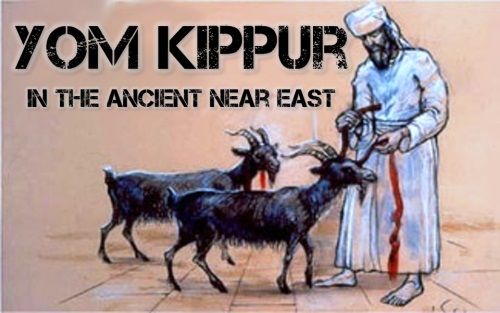
Don't Forget to Share!
Yom Kippur is a day where the entire nation of Israel seeks repentance for willful, rebellious sins. Have you wondered how this ritual was understood in the ancient Near East? How did ancient Israel understand sin and what were the affects of sin? What about forgiveness? Did forgiveness mean the same thing to them as it does to us today? In this teaching we will go into understanding the different types of sin and how atonement and forgiveness relate in order to bring about remission of sins, both those intentional and unintentional.
Oops, this is members-only content
This page requires at least a Basic level membership to access the teaching.
Audio
Oops, you don't have access to this content
Resources
The following is a list of recommended resources for this teaching:
- More resources coming soon...
Categories
34 thoughts on “Yom Kippur in the Ancient Near East”
Leave a Comment
You must be logged in to post a comment.

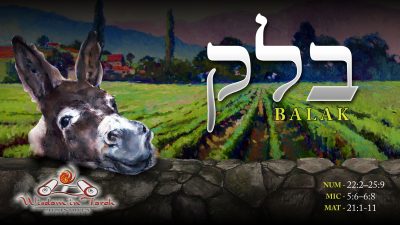
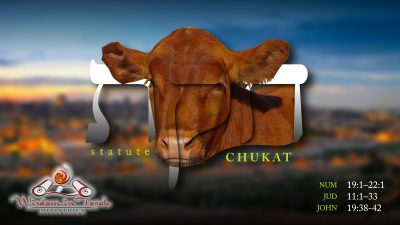
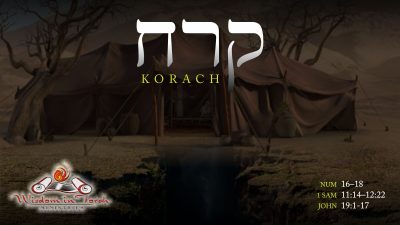
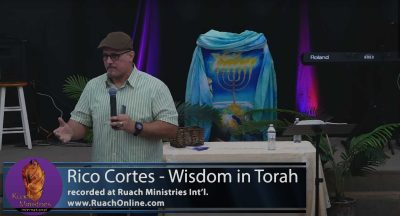
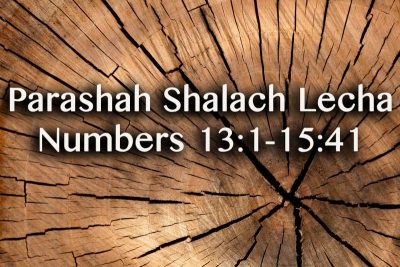
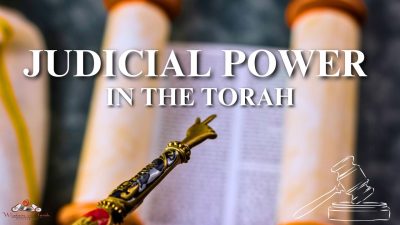
Hey Ryan, why is there a different account as to what was in the ark between the Torah, 1 kings (i think) and Hebrews 8? when did they add the golden pot of manna and Aaron’s staff?
Thank ya’ sir
Also, if people are asking why do we need to know these legalities? Because Yeshua said we’d reign and rule with HIM.
Thank you very much. I too appreciate a clarification of what it means to not speak the names of other gods.
Question: How do you spell the word Pay Sha? Sounds like Pesach?
Question: So would it be true that no one could lay a charge against the King? Only G-d through the prophet? the prophet being like the attorney general for our President? So when David said what he’d do to the one who took te little lamb; David set his own penalty, and G-d mitigated David’s penalty (death) through the death of his first born (Yeshua type)?
You did a good job but it’s a lot to take in; we should not give up understanding we may need to hear this more than once;twice.
Shalom Ryan,
Could you possibly list out the resources you used for this video. You said them so qucikly i was not able to write them all down. Thanks!
Shalom
Adam
Sin, Impurity, Sacrifice, Atonement: The Priestly Conceptions by Jay Sklar
http://www.amazon.com/Sin-Impurity-Sacrifice-Atonement-Conceptions/dp/1905048122/ref=sr_1_1?ie=UTF8&qid=1379472875&sr=8-1&keywords=jay+sklar
Blood Expiation in Hittite and Biblical Ritual by Yitzhak Feder
http://www.amazon.com/Expiation-Biblical-Writings-Supplements-Literature/dp/1589835549/ref=sr_1_1?ie=UTF8&qid=1379473063&sr=8-1&keywords=blood+hittite
Study of Hata’ & Hatta’t in Leviticus 4-5 by Nobuyoshi Kiuchi
http://www.amazon.com/Study-Hattat-Leviticus-Forschungen-Testament/dp/3161480554/ref=sr_1_fkmr2_1?ie=UTF8&qid=1379473111&sr=8-1-fkmr2&keywords=N+kiuchi+hatta
Leviticus (Continental Commentary) by Jacob Milgrom
http://www.amazon.com/Leviticus-Continental-Commentary-Commentaries/dp/0800695143/ref=sr_1_1?ie=UTF8&qid=1379473177&sr=8-1&keywords=Jacob+Milgrom
Leviticus 1-16 (The Anchor Yale Bible Commentaries) by Jacob Milgrom
http://www.amazon.com/Leviticus-1-16-Anchor-Bible-Commentaries/dp/0300139403/ref=sr_1_6?ie=UTF8&qid=1379473177&sr=8-6&keywords=Jacob+Milgrom
Anchor Yale Bible Dictionary (6 vols.)
http://www.logos.com/product/1660/anchor-yale-bible-dictionary
Wonderful teaching Ryan, answered a major questions I’ve mulled over for awhile. Thanks for all of the hard work you do to bring us these teachings! Shalom!
I see in Exodus 23:13 where YHVH tells us not to make mention of the names of other gods, not even to speak these pagan names. So, why is it OK to say these same names in your teachings? Just wondering.
DeVora
Shalom Devora,
You would not be able to read the bible out loud if you are forbidden from speaking the “names” of pagan gods. And since the Torah was supposed to be read aloud once every 7 years we would have a contradiction. Here is how I look at the context of Exodus 23:13 –
The problem is that we read something in English and don’t quite comprehend the way that it would be understood in the Hebrew mindset. Remember, the words we read in English are simply the translations that scholars chose to translate a Hebrew thought; the Torah was not given in 21st century American English. The Hebrew word ‘shem’ which is translated as “name” speaks to the person’s authority, that is why God is frequently saying “I am YHVH, that is My Name” or telling us to call upon the “Name of YHVH”. Its not that there are magical powers in the correct pronunciation of a word, that is called magic which is strictly forbidden in Scripture, it is that we are to call on His power and His authority. I’m not saying that its not important to know His personal name, but I am saying that you aren’t going to make Him save you by figuring out how to say His name correctly. Likewise, speaking the names of pagan gods is not what is referred to because, as I pointed out, the Scripture is filled with them, it is speaking about them as if they have some sort of power and authority that is what is forbidden.
That is where I am in my walk right now and the only way I could make any sense of the apparent contradiction. If you don’t agree with me, that’s okay.
Shalom,
Ryan
Thanks for your response, but I’m not sure if you understood my question. YHVH said not to speak the names of other gods and I was asking why you did speak the names of other gods. I was not talking about how to pronounce YHVH’s Name, for that, nobody knows.
Shalom,
DeVora
DeVora,
I explained above that the Hebrew word ‘shem’ translated as “name” in your English DOES NOT mean what you think it means and I used YHVH’s name as an EXAMPLE to show you its proper usage. Please re-read what I wrote above as that explains that the command is NOT saying that you cannot pronounce their names, it is saying that you cannot speak of them as an authority in your life.
You cannot simply accept the King Jimmy English and our modern dialect as the end all authority as to what Scriptures is trying to say. Look at the context throughout Scripture: The Bible is filled with names of pagan gods – asherah, azazel, molech, ba’al, esther, satan, etc, etc. You would never be able to read the Bible without actually repeating said pagan god names. Yeshua himself said to “render to Caesar…” Caesar was worshiped as a pagan god, in fact many early followers of Yeshua were put to death for refusing to worship Caesar. Yeshua also told Peter to “get behind me satan” thus speaking the “name” of a pagan god.
Furthermore, the verse does NOT say not to “SPEAK” the names, it says not to “mention” the names. The Hebrew word for “to speak” is dabar. The word used in Exodus 23:13 is tazkiru from the root zayin-qof-resh which is best translated as ‘invoke’ (NRSV) and carries the idea of praising, memorializing, acting on behalf of, swearing oaths by, etc. This meaning adds even more to the concept that the commandment is not to prohibit the sounding out of name of pagan gods or even referring to them in an academic setting. This verse is prohibiting Israelites from talking about these pagan gods as if they had any authority and power.
So to answer your question simply, the reason why I speak the name of the other gods is because a) its for the instruction of others so that they are not enticed to worship these other gods and b) because it is not prohibited as I do not give any credibility to these pagan gods.
Shalom,
Ryan
Thank you, Ryan, for clarifying this issue. I had the same question about pagan god’s names as DeVora did (except not specifically addressed to you saying their names.) Your explanation makes perfect sense to me. In our culture and time, it is impossible not to say a pagan god’s name (i.e. weekday names.) But, from the perspective of giving authority to gods that are not gods versus referencing gods in a non authoritative way, I feel I am not breaking that command. Again, thank you especially for your time and energy that you put into these studies.
Thank you for clarification. I was asking about the verb “make no mention” in the text, and not “names.” It reminds me of the Orthodox Jews who will substitute a name instead of speaking the real name.
Ryan,
The audio is so low is it difficult to listen.
Thank you
Sorry about that, I’ll try to boost it up and re-upload the video. It will take a day or two though.
What version of the scriptures were you reading from when you read “The Lord’s Prayer?” Thank you for your study. It has truly helped me on a personal level to understand “intentional” and “unintentional” sin.
The Scriptures 1998 version
Audio missing in Video part 2 and Audio part 2.
Is it just me? What’s the deal?
Tech Issues? Let us know.
GO TEAM!
Oh, wait… there it is.
GO TEAM!
Ryan,
The audio does not work for part 1, says “file not found”. Part 2 works fine.
Fixed!! Thanks for letting me know.
Thank you Ryan! for your research, time and effort and sharing with us what you have learnt regarding this subject matter and bringing us into èn greater understanding.
Shabbat Shalom!
I sooooo enjoyed the intro music this week….”I Am Israel Chai” in the lantin music style…..I would like to purchase the music……please share the CD you used.
Baruch for all you hard work you have done this past year……I’m so blessed from you you efforts!
Toni
Hi Toni,
Solomon has an incredible sound to his music. His band is called The Hebraism Music Project. Here is a link to his music on Amazon for download, I’m not sure that he has physical CDs any longer.
http://www.amazon.com/Born-At-Home-Sessions-Vol/dp/B0031G7Z76/ref=sr_1_1?ie=UTF8&qid=1379096889&sr=8-1&keywords=the+hebraism+music+project
todah tadah!!!